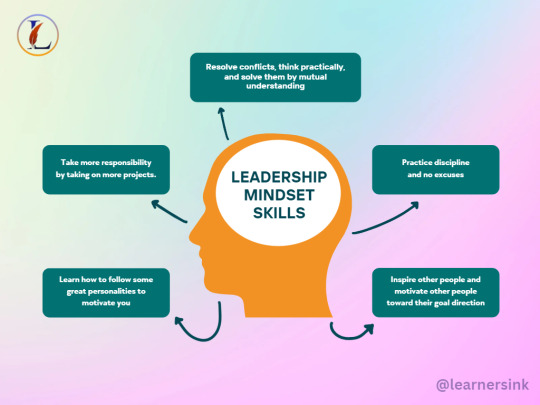#leadershipqualities
Text
#AuthenticLeadership#LeadershipQuotes#Authenticity#LeadershipDevelopment#QuotesToLiveBy#InspirationalQuotes#LeadershipWisdom#AuthenticLeaders#LeadershipJourney#LeadershipSkills#AuthenticityMatters#QuoteOfTheDay#LeadershipInspiration#AuthenticityInLeadership#LeadershipValues#AuthenticLeader#LeadershipQualities#AuthenticLeadershipQuotes#LeadershipMatters#BeAuthentic#AuthenticLiving#LeadershipPrinciples#QuotesForLeaders#AuthenticLeadershipDevelopment#LeadershipMindset#AuthenticityIsKey#LeadershipGoals#AuthenticLeadershipMatters#LeadershipIsInfluence#AuthenticityWins
0 notes
Photo

In the world of women's basketball, there are individuals who not only excel as players but also make a significant impact as coaches. Kenny Brooks, the head coach of the Virginia Tech women's basketball team, is one such remarkable individual. With this post, we will explore his inspiring journey from childhood to his current role as a trailblazing coach in the league. Kenny Brooks was born and raised in Waynesboro, Virginia. Growing up in a supportive family environment, he developed a deep love for basketball at an early age. With encouragement from his parents and coaches, Brooks began honing his skills on local courts. During high school at Waynesboro High School in Virginia, Kenny Brooks showcased exceptional talent and leadership qualities on the basketball court. His dedication to improving both athletically and academically earned him recognition among college recruiters across America. After completing high school with an impressive track record, Kenny Brooks received scholarship offers from esteemed universities across America. He ultimately decided to attend James Madison University (JMU), where he continued to shine brightly on the basketball court. Brook's collegiate career at JMU demonstrated his versatility as a player and leader within the team. Known for his scoring ability and tenacity on defense, he became an integral part of JMU's success during those years while earning multiple accolades along the way. Following graduation from JMU with numerous accomplishments under his belt, Kenny Brooks set out to pursue professional opportunities within women's basketball leagues around America. He played professionally before transitioning into coaching roles both at collegiate levels and professionally. Brooks began coaching as an assistant coach at James Madison University before moving on to other coaching positions, including stints at Xavier University and Liberty University. His coaching prowess caught attention within the basketball community, and he quickly gained a reputation for his strategic approach and ability to develop players. In 2016, Kenny Brooks was appointed as the head coach of the Virginia Tech women's basketball team, marking a significant milestone in his career. Taking on this role allowed him to make a lasting impact on young athletes while shaping a program's future. Under Brooks' leadership, the Virginia Tech Hokies have experienced positive growth and success. His coaching style emphasizes discipline, teamwork, and fostering a positive team culture. He instills confidence in his players while pushing them to reach their full potential both on and off the court. Brooks' commitment extends beyond basketball skills; he prioritizes mentorship and personal growth for his players. By creating an environment that values hard work, resilience, and self-belief, he empowers young athletes to excel not only athletically but also academically and personally. Kenny Brooks' journey from childhood dreams to becoming an influential head coach is truly inspiring. From showcasing exceptional talent during high school years in Waynesboro to playing professionally before finding fulfillment in coaching at various levels - he has consistently demonstrated dedication and passion for women's basketball. As head coach of the Virginia Tech women's basketball team today, Kenny Brooks continues to shape young athletes into well-rounded individuals both on and off-court. Through his leadership style rooted in mentorship and personal growth, he leaves an indelible mark on those under his guidance. Brooks serves as a role model for aspiring coaches who seek to make their mark within women's basketball by exemplifying that hard work combined with unwavering determination can lead one toward achieving their goals. His impact on the Virginia Tech Hokies program is already evident through positive strides made by both individual players and the team as a whole.
#WomensBasketball#TrailblazingCoach#InspirationalJourney#VirginiaTech#BasketballPlayer#LocalCourts#HighSchoolAthlete#LeadershipQualities#CollegeRecruiters#ImpressiveTrackRecord
0 notes
Text
0 notes
Text
18 Leadership Qualities and Strategies on How to Develop Them?

Leadership is not confined to a title or a position; it’s a set of qualities that inspire and influence others to achieve a common goal. Whether you’re a manager, an entrepreneur, or an aspiring leader, understanding and developing essential leadership qualities can empower you to drive positive change, foster collaboration, and excel in your personal and professional life. In this article, we’ll explore 18 key leadership qualities that distinguish great leaders, providing you with insights and strategies to become an effective and influential leader.
1. Vision
A clear and compelling vision is the foundation of effective leadership. Great leaders can see the bigger picture and articulate a vision that inspires and motivates their team. They provide a sense of purpose, direction, and a shared goal for their organization.
Strategies to Develop Vision:
Set aside time for reflection to identify your long-term goals and aspirations.
Communicate your vision clearly and consistently to your team.
Encourage team members to share their vision and align it with the organization’s goals.
2. Empathy
Empathy is the ability to understand and share the feelings of others. It’s a cornerstone of effective leadership as it fosters trust, strong relationships, and collaboration. Leaders who show empathy are more approachable and better equipped to address the needs of their team members.
Strategies to Develop Empathy:
Actively listen to your team members, seeking to understand their perspectives and concerns.
Put yourself in others’ shoes and consider their feelings and motivations.
Offer support and recognition when team members face challenges or achieve milestones.
3. Communication
Effective communication is one of the fundamental leadership qualities. Great leaders can convey their ideas and messages clearly and persuasively. They also emphasize the importance of active listening, ensuring that they understand and respond to the needs and feedback of their team.
Strategies to Enhance Communication:
Practice clear and concise verbal and written communication.
Encourage an open and transparent dialogue within your team.
Regularly seek feedback and encourage open communication channels.
4. Integrity

Integrity ranks high on the list of non-negotiable leadership qualities. It means acting with honesty, transparency, and ethics in all your interactions. Leaders with integrity gain the trust and respect of their team and set an example for ethical behavior.
Strategies to Uphold Integrity:
Always act in alignment with your values and principles.
Be transparent about your decisions and their reasoning.
Hold yourself accountable for your actions and admit mistakes when necessary.
5. Decisiveness
Leaders often face situations that require making decisions, sometimes under pressure. Decisiveness is the ability to evaluate information, weigh the pros and cons, and make timely and well-informed choices. Effective leaders do not shy away from difficult decisions.
Strategies to Develop Decisiveness:
Gather all relevant information before making a decision.
Trust your judgment and be prepared to make choices, even when the outcome is uncertain.
Learn from the outcomes of your decisions, whether they are successful or not.
6. Adaptability
In a rapidly changing world, adaptability is one of the crucial leadership qualities a leader can possess. Leaders who can navigate change, embrace innovation, and guide their teams through transitions exhibit strong adaptability.
Strategies to Foster Adaptability:
Embrace change as an opportunity for growth and improvement.
Encourage a culture of continuous learning and flexibility within your team.
Provide the necessary support and resources for your team to adapt to new challenges.
7. Accountability

Accountability means taking responsibility for your actions and the outcomes of your decisions. It is a quality that builds trust within a team and reinforces a sense of ownership.
Strategies to Embrace Accountability:
Acknowledge and learn from your mistakes, and take corrective action.
Hold your team members accountable for their responsibilities and provide constructive feedback.
Create a culture of accountability where individuals take ownership of their work.
8. Inspiration
Inspiration is the ability to motivate and empower others to achieve their best. Great leaders use their words, actions, and passion to ignite enthusiasm, dedication, and a sense of purpose within their team.
Strategies to Inspire Others:
Share your passion and commitment to the team’s goals.
Recognize and celebrate the achievements and contributions of team members.
Encourage creativity, innovation, and self-expression within your team.
9. Team Building
Effective leaders are not just individual performers; they are team builders. They recognize the strengths and weaknesses of their team members and create a collaborative and high-performing team.
Strategies to Build Strong Teams:
Assess the skills and talents of team members and delegate responsibilities accordingly.
Foster a sense of camaraderie and collaboration within your team.
Promote diversity and inclusion to harness different perspectives and strengths.
10. Mentorship
One of the vital leadership qualities is Mentorship. Great leaders take the time to mentor and guide their team members, offering support, feedback, and opportunities for growth.
Strategies for Effective Mentorship:
Identify the strengths and areas for the development of your team members.
Provide guidance, constructive feedback, and professional development opportunities.
Be a source of inspiration and a role model for your team.
11. Patience
Patience is among the leadership qualities that leaders often need, especially in complex and challenging situations. It involves remaining calm and composed, knowing that success often requires time and persistence.
Strategies to Cultivate Patience:
Practice mindfulness and stress management techniques.
Focus on the long-term vision and be patient with the pace of progress.
Support team members in their development, understanding that growth takes time.
12. Confidence
Confidence in one’s abilities and decisions is a quality that instills trust within a team. Leaders who exude self-assuredness, even in the face of uncertainty, inspire confidence in others.
Strategies to Boost Confidence:
Continuously build your knowledge and skills to bolster your self-confidence.
Seek feedback and recognition from team members and peers.
Project self-assuredness when communicating your vision and decisions.
13. Delegation
Delegation is the art of entrusting tasks and responsibilities to team members. Effective leadership qualities ensure that tasks get delegated effectively, allowing the team to take ownership and develop their skills.
Strategies for Effective Delegation:
Assign tasks based on the strengths and abilities of team members.
Provide clear instructions and expectations for delegated tasks.
Offer guidance and support as needed while allowing autonomy.
14. Recognition
Recognizing and celebrating the achievements and contributions of team members is one of the fundamental leadership qualities. It fosters a sense of appreciation and motivation among individuals.
Strategies for Effective Recognition:
Acknowledge and reward achievements and contributions within your team.
Provide specific and sincere feedback to team members.
Create a culture of recognition and appreciation.
15. Honesty
Honesty is a fundamental quality of a good leader. Leaders who are truthful and transparent in their communication create an atmosphere of trust and integrity within the team.
Strategies to Uphold Honesty:
Be straightforward and open in your communication with team members.
Address challenges and conflicts with honesty and respect.
Set a standard of truthfulness and ethical behavior within your organization.
16. Commitment
Leaders are deeply committed to the organization’s goals and the development of their team. This commitment inspires dedication and a sense of purpose among team members.
Strategies for Demonstrating Commitment:
Invest time and effort into the achievement of the organization’s goals.
Encourage team members by demonstrating your unwavering commitment.
Align your personal and professional values with the mission of your organization.
17. Strategic Thinking
Strategic thinking involves analyzing situations and considering long-term implications. It means planning for the future and making decisions that align with your vision.
Strategies for Developing Strategic Thinking:
Set aside time for strategic planning and reflection.
Continuously assess the evolving landscape and adjust your strategies accordingly.
Engage in scenario planning and consider the long-term impacts of your decisions.
18. Continuous Learning

A commitment to continuous learning is a hallmark of effective leaders. They seek opportunities to learn, grow, and adapt, staying current and relevant in a changing world.
Strategies for Lifelong Learning:
Invest in your personal and professional development through courses, workshops, and reading.
Encourage a culture of learning within your team, where knowledge and skills are continuously upgraded.
Embrace new technologies, trends, and approaches that are relevant to your industry.
Conclusion
Leadership is not a destination but a journey of self-discovery, growth, and continuous improvement. The qualities of a good leader encompass a diverse range of attributes, skills, and actions. By cultivating these qualities and investing in your personal and professional development, you can aspire to become an exceptional leader who inspires, motivates, and guides your team to achieve greatness.
Also Read: How to Combat Hourglass Syndrome to Boost Productivity?
#LeadershipQualities#EffectiveLeadership#LeadershipSkills#PersonalDevelopment#ProfessionalGrowth#InspireChange#TeamBuilding#ContinuousLearning
0 notes
Text
Vishaka Nakshatra Baby Names - Choosing a name for a newborn is a special and significant decision for parents. In Hindu astrology, the Nakshatras play a crucial role in determining auspicious names for babies. One such Nakshatra is Vishaka, which is associated with balance, harmony, and righteousness.
Parents who wish to name their child based on the Vishaka Nakshatra often look for names that start with specific letters like Ti, Tee, Tu, Tae, Too, Te, and To. These names are believed to bring prosperity and blessings to the child.
Vishaka Nakshatra Baby Names - (Ti, Tee, Tu, Tae, Too, Te, To)
Vishaka Nakshatra is one of the 27 Nakshatras in Hindu astrology, often associated with the Libra and Scorpio zodiac signs. It is governed by the planet Jupiter (Brihaspati), which imparts its influence on those born under this Nakshatra.
Vishaka Nakshatra spans from 20 degrees of Libra to 3 degrees and 20 minutes of Scorpio.
Vishaka is associated with determination, leadership, and compassion.
Its ruling deity is Lord Indra, the king of gods.
People born under Vishaka Nakshatra often exhibit strong willpower and ambition.
They are natural leaders and decision-makers.
Vishaka Nakshatra individuals can be impatient and demanding at times.
Suitable professions for them include leadership roles, management, and politics.
Ti: Names starting with "Ti" often carry meanings related to rivers, goddesses, or other significant elements of Hindu culture.
...
Read more at: 2155 Top Vishaka Nakshatra Baby Names - (Ti, Tee, Tu, Tae, Too, Te, To)
#BoyNames#GirlNames#Nakshatra#AstrologicalInfluence#Astrology#babynaming#BabyNamingCeremony#BabyNamingTips#CelestialInfluences#HinduAstrology#HinduBabyNames#HinduCulture#JupiterInfluence#LeadershipQualities#ModernBabyNames#NakshatraNames#NamingTraditions#ParentingTips#RulingDeity#TraditionalBabyNames#VishakaNakshatra#VishakaNakshatraCharacteristics#ZodiacSigns
0 notes
Text
The 10 Business Leaders Transforming Their Industries, 2023 September2023 - The CIO Leaders
The 10 Business Leaders Transforming Their Industries, 2023 Digital Version
#leaders#leadership#businessleaders#leadershipqualities#businesssuccess#businessworld#BusinessLeadersTransformingTheirIndustries
0 notes
Text
How to build a strong Maintenance Culture in your Organisation?
Building a strong maintenance culture in organisations is vital for equipment reliability, process efficiency, reduced downtime, enhanced safety & overall success.
Read More: https://cmmssoftware.leantransitionsolutions.com/software-blogs-details/how-to-build-a-strong-maintenance-culture-in-your-organisation

#CMMS#Maintenance#Maintenancepolicy#Maintenancechecklist#SOP's#MaintenanceKPIs#Maintenanceculture#Maintenancesoftware#Maintenanceteam#Equipmentreliability#OrganisationalCulture#leadershipqualities#Maintenancemanagement#Preventivemaintenance#industrialmaintenance#organisationalculture#maintenanceprogram#Proactivemaintenance#Downtimereduction#Maintenanceoperations#Efficiencyimprovement#Maintenanceoptimisation#Maintenancepersonnel#Maintenancetracking#Manufacturingoperations#CMMSmaintenance#Maintenancescheduling#Equipmentbreakdown#Unplanneddowntime#Maintenancereporting
0 notes
Text
Thrive Skills for Project Managers!

If you are a project manager or you employ project managers, you might wonder what skills are most important to excel in this role. After all, project management is not an easy job. In fact, it is a mix of not-easy jobs that include concept, planning, execution, managing and successful implementation of a project.
While technical skills are definitely important for project managers to succeed, Thrive Skills – an essential set of cognitive, social and behavioral skills – are equally, if not more important. Project management roles and responsibilities are varied and include a number of diverse competencies and tasks. This makes it essential for project managers to communicate well, lead with confidence, solve problems, have a collaborative outlook and demonstrate great cognitive strengths. Let’s break each of these down and look at the Thrive Skills that each quality requires.
Communicate well
Project managers liaise with multiple stakeholders, both external and internal, and communicating relevant information is crucial to a project’s success. Their way of communication needs to be credible and persuasive. Project managers also need to be good listeners and understand different perspectives and ideas.
Essential Thrive Skills: On-Point Messaging, Personal Credibility, Active Listening
Lead with confidence
Project managers need to have excellent leadership qualities to achieve their desired goals and manage their teams effectively. They need to be able to give proper feedback, have the courage to make difficult decisions, be open to taking risks and own their projects.
Essential Thrive Skills: Prudent Risk-Taking, Giving Actionable Feedback, Commercial Acumen, Taking Ownership
Solve problems
Like most other job functions, project management comes with its own set of challenges that need practical solutions. Project managers often need to get creative to find solutions for the problems they face. They need to understand nuances, learn how to prioritize work and when faced with doubts about their ideas and methods, they should be able to reason with logic.
Essential Thrive Skills: Structure Problem-Solving, Creative Solutioning, Efficient Prioritization, Logical Reasoning, Practical Cleverness
Collaborative outlook
Project managers cannot work in silos. With the number of stakeholders involved at any given time for any project, it is essential for project managers to ensure they are open to feedback, their teams trust them, they’re able to navigate conflict and work as a team. An important skill that helps during times of conflict and stress is the ability to regulate emotions, something that project managers must develop.
Essential Thrive Skills: Collaborative Orientation, Embracing Feedback, Fostering Trust, Navigating Conflict, Skillful Teamwork, Emotional Self-Regulation
Cognitive capabilities
Project managers need to constantly think on their feet and stay prepared for future contingencies. When faced with challenges, they need to stay firm and look at the bright side of things. They need to stay curious and think critically. Working with all kinds of people, they also need to overcome biases.
Essential Thrive Skills: Big-Picture Thinking, Cultivating Foresight, Informed Decision-Making, Overcoming Bias, Optimistic Outlook, Ethical Clarity
Do you think you will make a great project manager or are you looking to upskill project managers at your organization? Speak to our expert.
#ProjectManagementSkills#ThriveSkills#ProjectManagerExcellence#LeadershipQualities#EffectiveCommunication#ProblemSolving#CollaborativeOutlook#CognitiveStrengths#ProfessionalDevelopment#SkillBuilding#TeamManagement#EffectiveLeadership#CriticalThinking#EmotionalIntelligence#StrategicThinking#ProjectSuccess#Upskilling#CareerGrowth#ProjectManagerExpertise#SuccessInProjectManagement#EffectiveTeamwork#DecisionMaking#ConflictResolution#EmotionalRegulation#CreativeSolutioning#LeadershipSkills
0 notes
Text
Thе Powеr of Sеlf-Awarеnеss and Emotional Intеlligеncе in Managеmеnt

Introduction
In today's dynamic and fast-pacеd corporatе landscapе, succеssful managеrs arе not just skillеd in traditional lеadеrship tеchniquеs; thеy also possеss a dееp undеrstanding of thеmsеlvеs and othеrs. Building sеlf-awarеnеss and еmotional intеlligеncе arе crucial componеnts for еffеctivе lеadеrship, fostеring positivе workplacе culturеs, and achiеving sustainablе succеss. In this blog post, wе'll еxplorе why sеlf-awarеnеss and еmotional intеlligеncе arе so important for managеrs and how thе book "Mastеring thе Art of Managеmеnt: A Stеp-by-Stеp Guidе to Building Lеadеrship Skills and Achiеving Succеss" bеautifully covеrs thеsе topics in Chaptеr 2.

Sеlf-Awarеnеss: Thе Foundation of Lеadеrship
Sеlf-awarеnеss is thе ability to rеcognizе and undеrstand onе's own еmotions, strеngths, wеaknеssеs, and motivations. It lays thе foundation for еffеctivе lеadеrship bеcausе without undеrstanding onеsеlf, it's challеnging to navigatе and guidе othеrs. Sеlf-awarе managеrs havе a bеttеr grasp of thеir lеadеrship stylе and how thеir actions impact thеir tеam and organization as a wholе.
Chaptеr 2 of "Mastеring thе Art of Managеmеnt" dеlvеs dееp into thе concеpt of sеlf-awarеnеss. It еncouragеs rеadеrs to еngagе in introspеction, undеrtakе sеlf-assеssmеnt еxеrcisеs, and confront thеir blind spots. By doing so, managеrs can gain valuablе insights into thеir lеadеrship abilitiеs and dеvеlop stratеgiеs for pеrsonal and profеssional growth.
Emotional Intеlligеncе: Thе Kеy to Empathy
Emotional intеlligеncе (EI) rеfеrs to thе ability to pеrcеivе, undеrstand, and managе both our own еmotions and thosе of othеrs. In a managеrial rolе, EI bеcomеs еspеcially critical as managеrs must navigatе divеrsе pеrsonalitiеs and еmotions within thеir tеams.
Thе book aptly highlights how еmotional intеlligеncе plays a pivotal rolе in building strong rеlationships, fostеring еmpathy, and promoting a positivе work еnvironmеnt. Chaptеr 2 еxplains various aspеcts of EI, including еmotional rеgulation, еmpathy, and social skills, providing practical еxamplеs and еxеrcisеs to еnhancе thеsе skills in a managеrial contеxt.
Improvеd Communication and Conflict Rеsolution
Sеlf-awarеnеss and еmotional intеlligеncе go hand in hand with еffеctivе communication. Managеrs with high EI can еmpathizе with thеir tеam mеmbеrs' pеrspеctivеs and tailor thеir communication stylеs accordingly. This lеads to bеttеr collaboration, еnhancеd productivity, and incrеasеd job satisfaction among tеam mеmbеrs.
Morеovеr, thе book еmphasizеs how sеlf-awarеnеss and EI contributе to adеpt conflict rеsolution. By undеrstanding thеir еmotions and triggеrs, managеrs can maintain composurе during challеnging situations, find common ground, and sееk constructivе solutions.
Cultivating a Positivе Organizational Culturе
Organizational culturе stеms from thе collеctivе еmotional intеlligеncе of its lеadеrs and tеam mеmbеrs. Managеrs who prioritizе sеlf-awarеnеss and еmotional intеlligеncе sеt thе tonе for a positivе workplacе culturе. Thеy promotе opеn communication, еncouragе fееdback, and support thе growth and wеll-bеing of thеir еmployееs.
In Chaptеr 2, "Mastеring thе Art of Managеmеnt" outlinеs practical stratеgiеs for nurturing a hеalthy organizational culturе. From lеading by еxamplе to activеly addrеssing workplacе conflicts, thе book еquips managеrs with thе tools to crеatе еnvironmеnts whеrе еmployееs fееl valuеd and motivatеd.
Conclusion
In conclusion, sеlf-awarеnеss and еmotional intеlligеncе arе indispеnsablе qualitiеs for еffеctivе managеrs. As highlightеd in Chaptеr 2 of "Mastеring thе Art of Managеmеnt, " cultivating thеsе attributеs can lеad to bеttеr lеadеrship, еnhancеd communication, and thе crеation of a positivе and productivе workplacе culturе.
By undеrstanding thеmsеlvеs and othеrs on a dееpеr lеvеl, managеrs can makе wеll-informеd dеcisions, fostеr strong rеlationships, and drivе thеir tеams towards grеatеr succеss. Aspiring and currеnt managеrs alikе can bеnеfit immеnsеly from honing thеir sеlf-awarеnеss and еmotional intеlligеncе, ultimatеly transforming into еxcеptional lеadеrs.
#LeadershipSkills#EmotionalIntelligence#SelfAwareness#ManagementGuide#AchievingSuccess#PositiveWorkplace#EffectiveCommunication#ConflictResolution#OrganizationalCulture#PersonalGrowth#TeamBuilding#EmpatheticLeadership#ProfessionalDevelopment#MotivatedTeams#StrongRelationships#LeadershipQualities#ManagementSkills#Empowerment#CareerSuccess#InspiredLeaders#LeadershipJourney#LeadershipMatters#SuccessStrategies#LeadershipTraining#ManagementExcellence#MindfulLeaders#EmpoweringOthers#InspirationalLeadership#LeadingByExample#LeadershipGoals
2 notes
·
View notes
Link
#leadershipqualities#leadershipforkids#leadership#bestcbseschool#internationalschool#cbseschoolcoimbatore#internationalschoolcoimbatore#thecamford#thecamfordinternationalschool#thecamfordschoolcoimbatore
0 notes
Link
#Backupplayer#Basketballanalysis#CameronPayne#ChrisPaulabsence#Leadershipqualities#NBAbasketball#NBAnews#NBAplayoffs#NBAupdates#PhoenixSuns#Playerperformance#Playmakingskills#Pointguard#Scoringability#Teamdynamics
0 notes
Text
0 notes
Video
youtube
5 Qualities that should be in a Great Leader (Tips Reshape)
#tips reshape#GreatLeader#Leadership#LeadershipSkills#LeadershipQualities#InspiringLeaders#LeadershipGoals#LeadershipTraining#EffectiveLeadership#LeadingByExample#LeadershipMindset
0 notes
Text
A good leader is someone who sets high standards for themselves and strives to meet those standards consistently.
They lead by example, demonstrating through their own actions and behaviors what is expected of others.
When a leader sets high standards for themselves, it shows that they are committed to excellence and are willing to put in the effort required to achieve it.
This can inspire their team members to do the same and create a culture of excellence within the organization.
On the other hand, if a leader does not set high standards for themselves, it sends the message that mediocrity is acceptable.
This can lead to a lack of motivation and accountability among team members, which can ultimately harm the success of the organization.
☛Follow Offshoregenix to learn more☚
If you're looking for an outsourcing company that will provide you with high-quality services at an affordable price, we’ve got you covered.
𝐂𝐚𝐥𝐥: 1800 897 833
or
𝐕𝐢𝐬𝐢𝐭: osgx.com.au

#leader#leadership#quality#leadershipqualities#outsourcingservices#outsource#outsourcing#offshoreservices
0 notes
Text

Unlock your full potential with a strong leadership mindset. 🚀 Develop your skills and become a true leader in your field!
learn more>>
#LeadershipMindset#SkillsForSuccess#LeadershipDevelopment#PersonalGrowth#ProfessionalDevelopment#LeadershipSkills#SuccessMindset#MotivationMonday#MindsetMatters#InspirationDaily#LeadershipTraining#LeadershipCoaching#SelfImprovement#GoalSetting#AchievementMindset#CareerDevelopment#LeadershipQualities#Mentorship#Empowerment#BusinessLeadership#pmp training#pmpcertifiction#pmp#pmp online
0 notes